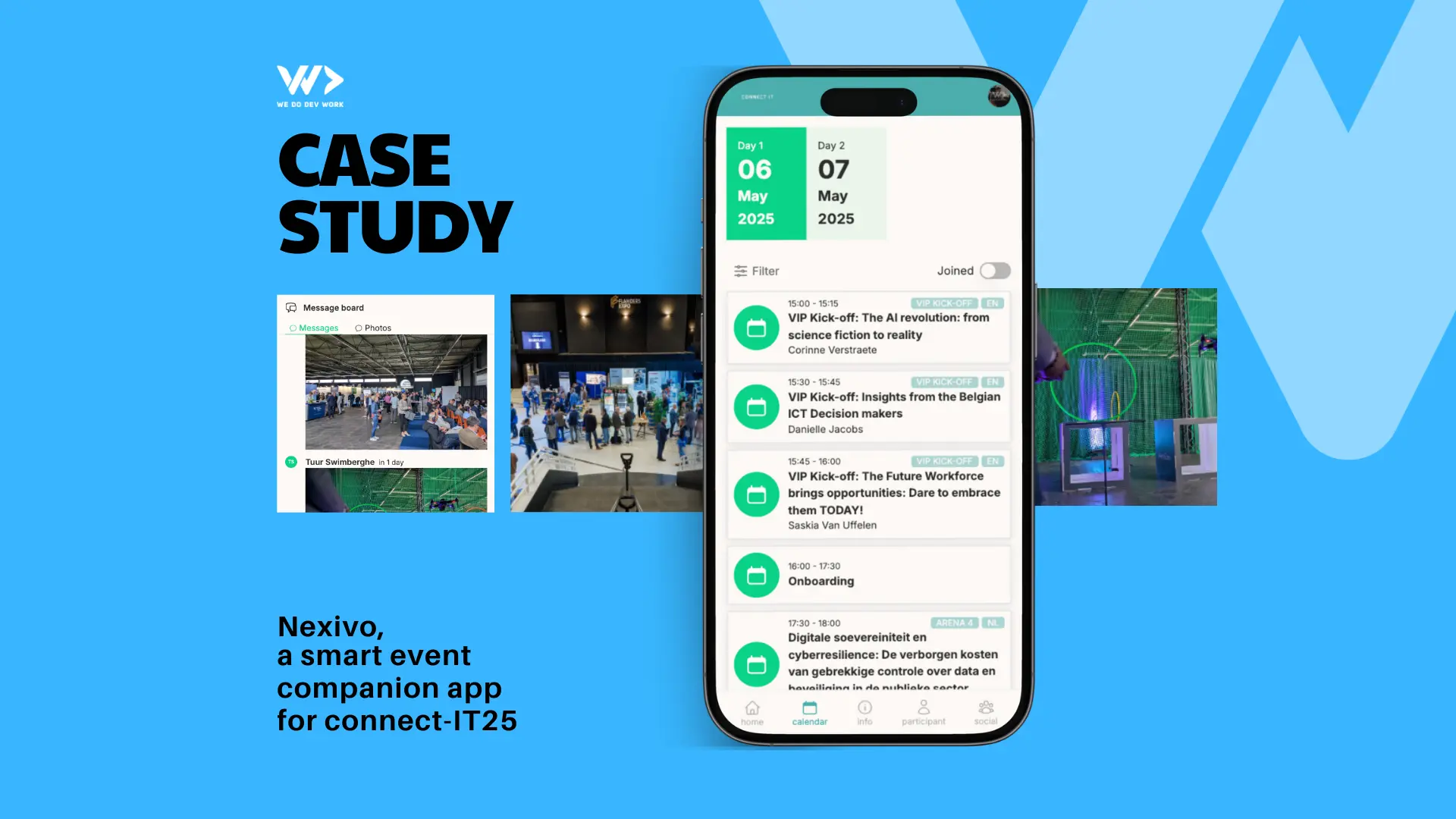
Waar moet je op letten bij het kiezen van een outsourcingpartner

Het uitbesteden van IT-projecten naar het buitenland is een vaak voorkomende aanpak voor bedrijven die wereldwijd talent willen benutten. Met de juiste partner samenwerken kan het verschil maken tussen falen en succes. Een project verloopt namelijk vlot wanneer de communicatie goed is en alle betrokken partijen op één lijn staan met de bedrijfsdoelstellingen.
Verschillende bedrijven leveren een ander resultaat. Wij helpen jou om de groene en rode vlaggen te herkennen tijdens je zoektocht naar een externe IT partner. We geven je ook wat tips om goed samen te werken.
Communicatie en bedrijfscultuur
Een gezonde bedrijfscultuur definieert hoe werknemers zich gedragen, en hoeveel waarde ze hechten aan de systemen die een vlotte samenwerking ondersteunen. Zelfs op lokaal vlak verschillen bedrijven van cultuur, het is dus geen uitzondering dat wanneer je naar buitenlandse partners kijkt er ook verschillen te vinden zijn. Zo kan een ander bedrijf andere werkuren volgen, andere vakantieregelingen hanteren of gewoon op een andere toon communiceren.
Die communicatie is hier het belangrijkst. Zijn zij transparant in het delen van hun waarden en cultuur? Het is belangrijk om een wederzijds begrip te creëren over elkaars stijl van werken, je doelen en verwachtingen naar elkaar toe. De juiste taal spreken helpt alvast, maar kijk ook goed naar de communicatiestijl dat een potentiële partner hanteert tijdens de initiële gesprekken over het project. Wanneer zij te grote beloftes maken, kan dat een slecht teken zijn. Een goed uitgewerkt plan daartegenover is een teken dat de partner echt naar jouw noden kijkt.
Bedrijven die al ervaring hebben met internationale samenwerkingen kunnen deze verschillen in cultuur en communicatie beter overbruggen. Natuurlijk helpt een goede voorbereiden ook om het juiste resultaat te krijgen. Zelfs voordat je start, neem de tijd om goed te definiëren wat nu juist de verwachtingen en verantwoordelijkheden zijn.
Gebruik maken van een agile process kan er ook voor zorgen dat de communicatie continu wordt verbeterd tussen jou en de partner.
Technische expertise
Evalueer een bedrijf door te kijken naar wat ze al bereikt hebben. Hebben ze de juiste skills beschikbaar om jouw project te vervolledigen? Kijk zeker naar gelijkaardige projecten binnen jouw industrie. Je kan ook rechtstreeks vragen aan een potentiële partner om vorige projecten te demonstreren.
Een vuistregel is dat je een bedrijf kiest dat zijn processen duidelijk kan uitleggen, je echte voorbeelden kan aantonen en dat ook durft tegengas geven wanneer je idee niet geweldig is. Definieer samen de kwaliteitsstandaarden, beveiligingsnormen, gegevensverwerking, toegangsbeheer en intellectuele gegevens rechten. Een goede partner kan de normen naleven, documenteren en rapporten opleveren zodat jij tijdens het verloop van het project deze afspraken kan opvolgen.
Betrouwbaarheid
Om een project op schema te houden moet je op voorhand afspraken maken over wat er gebeurt als er een deadline niet gehaald wordt. Kijk naar hoe een bedrijf zijn beloftes nakomt en wat zij doen wanneer er onverwachte situaties voorkomen. Kijk naar feedback van vorige klanten, en probeer om externe bronnen te gebruiken zoals Trustpilot of LinkedIn, deze kunnen je meer betrouwbare reviews geven. Je kan ook rechtstreeks contact opnemen met een vorige klant.
De noden van jouw bedrijf kunnen snel veranderen. Een bedrijf dat zijn resources kan opschalen en prioriteiten kan bijstellen zonder conflict, maakt dat jouw project makkelijker verloopt. Je ziet dat een bedrijf toegewijd is wanneer ze goed presteren onder druk, open communiceren over mogelijke problemen en met oplossingen komen in plaats van excuses.
Kost en waarde
Projecten uitbesteden kan je veel geld besparen. Het is dus belangrijk om te kijken wat de waarde is die je krijgt voor een investering. Of je nu een teamlid wilt vervangen of een groot project gedaan wilt krijgen, er zijn verschillende prijsconstructies die tot andere resultaten kunnen leiden.
Een partner moet dus transparant zijn in hoe zij exact hun kosten aanrekenen. Teams dat hun kennis, productiviteit en innovatieve oplossingen goed combineren kunnen je een hogere return on investment geven in vergelijking met het laagste bod. De stabiliteit van een bedrijf heeft ook een directe invloed op hoe zij de standaarden hoog kunnen houden tijdens je project.
Maak een budget op en communiceer hier ook over, ook wanneer je voor een hybride prijsconstructie kiest. Plan hoeveel je gaat spenderen en wanneer een betaling gemaakt kan worden. Ga ook op voorhand akkoord over wat er wel en niet inbegrepen is in de prijs. De partner moet namelijk ook binnen budget blijven om het project tot een goed resultaat te brengen.
Ons perspectief
Een externe IT partner kan je technische expertise aanvullen bij het bouwen van een complex systeem. Zo kun je je richten op je kernactiviteiten, terwijl je ideeën tot leven worden gebracht zonder enorme kosten gemaakt te hebben.
Ben je op zoek naar een externe IT partner? Het helpt om te praten met een team dat ervaring heeft. Neem gerust contact op met We Do Dev Work om de conversatie verder te zetten.




